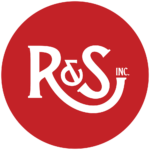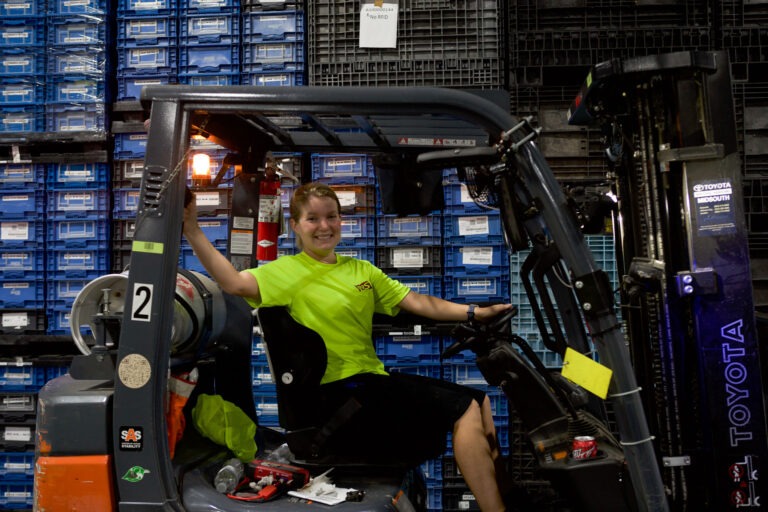Food inventory management involves overseeing the acquisition, storage, and distribution of products in compliance with regulatory standards. It’s a unique industry that includes managing perishable items with expiration dates and meeting food-grade requirements. Not simply limited to food, it includes products like nutraceuticals, supplements, and medical supplies. Effective management benefits businesses and customers while fulfilling regulatory obligations.
Our best food inventory management practices include:
- Implement temperature control
- Adopt FIFO practices
- Forecast your sales
- Use packaging to prevent damage and lower costs
- Keep track of stock movement in case of a recall
- Perform inspections
- Choose the right warehousing partner
Why Your Food Inventory Management System Matters
Your food storage management system is crucial for several reasons. It’s essential for minimizing inventory loss and ensuring you have accurate stock levels to meet customer demand. It also has a direct impact on customer satisfaction, as efficient storage practices preserve product quality and freshness.
Moreover, regulatory bodies mandate proper storage procedures to uphold food safety standards, making compliance a necessity. Neglecting your storage system can result in:
- Regulatory fines
- Reputational damage
- Compromised customer health
This makes investing in a robust food storage management system an essential practice. By having one in place, you can maintain operational efficiency and regulatory compliance while retaining customer trust and satisfaction.
Best Practices for Food Inventory Management
Following best practices for food inventory management systems is paramount for maintaining product quality, safety, and operational efficiency. Collectively, these practices uphold food safety, regulatory compliance, and customer satisfaction while optimizing resource utilization and minimizing risks to business reputation.
1. Implement temperature control
Temperature has a major impact on food safety and quality. Maintaining optimal temperatures ensures that perishable items remain fresh, minimizing the risk of spoilage and foodborne illnesses.
A meticulous approach to temperature control is integral to a robust food inventory management system. It maintains food-grade standards and preserves the quality and safety of products throughout their lifecycle.
By adhering to precise temperature guidelines, you can:
- Prolong shelf life
- Reduce waste
- Uphold regulatory compliance
This helps enhance both your operational efficiency as well as customer satisfaction.
2. Adopt FIFO practices
Short for first in, first out, FIFO serves as a linchpin strategy for aligning:
- Inventory practices
- Regulatory requirements
- Customer quality expectations
FIFO is a cornerstone of food inventory management by maintaining inventory tracking accuracy. FIFO ensures that items are utilized based on their arrival sequence within a food inventory management system. This prevents older products from languishing on shelves and risking spoilage.
By adhering to FIFO principles, you can ensure that only fresh and safe products are circulated while upholding food-grade standards. This method doesn’t just minimize waste. It also optimizes inventory turnover, reducing the likelihood of stock obsolescence and improving customer satisfaction through improved quality.
3. Forecast your sales
Forecasting sales is a crucial best practice in food inventory management for several reasons. To start, you can optimize your inventory levels within the food inventory management system by predicting demand. This will help ensure you have enough stock to meet customer needs while avoiding excess waste.
Forecasting is proactive, minimizing the risk of stockouts or overstocking while enhancing operational efficiency and cost-effectiveness. It supports food-grade standards by aligning inventory levels with demand. This reduces the likelihood of expired products. It also smooths supply chain operations, allowing for better coordination with your suppliers and distributors.
4. Use packaging to prevent damage and lower costs
Effective packaging within the food inventory management system safeguards products from potential harm during:
- Transportation
- Storage
- Handling
Using durable and appropriately designed packaging supports food-grade standards while ensuring the safety and integrity of food products. This reduces the risk of contamination and spoilage while minimizing product loss and waste. The result is enhanced operational efficiency and cost-effectiveness.
Optimized packaging solutions also contribute to streamlined logistics operations that reduce transportation expenses and the need for additional protective measures. This promotes sustainability through reduced waste and resource usage.
5. Keep track of stock movement in case of a recall
The ability to trace stock movement through your food inventory management system ensures swift and precise identification of affected products during a recall scenario. Tracking movement lets you quickly pinpoint the source and extent of contamination or safety concerns. This lets you act quickly, minimizing the risk of widespread harm and protecting your brand’s reputation.
The prompt removal of compromised items from circulation also upholds food-grade standards, lowering potential health risks and regulatory penalties. Additionally, comprehensive stock movement tracking supports regulatory compliance and transparency. This provides authorities with accurate data to execute food and food-related recalls.
6. Perform inspections
Performing inspections is a fundamental food inventory management practice for several reasons. Within a food inventory management system, regular inspections ensure adherence to food-grade standards, guaranteeing the safety and quality of stored products.
You can reduce the risk of contamination, spoilage, or non-compliance with regulatory requirements by systematically assessing:
- Storage conditions
- Hygiene practices
- Product integrity
Inspections also facilitate early detection of issues, enabling timely corrective actions to maintain optimal inventory conditions.
Another important benefit of inspections is increased operational efficiency by identifying areas for improvement in processes or infrastructure. A comprehensive inspection regimen fosters transparency and trust among stakeholders, demonstrating a commitment to food safety and quality assurance.
The right warehousing partner conducts state-required inspections to uphold their certification, ensuring compliance with regulations. Additionally, they will welcome you for on-site inspections, fostering transparency and trust. This collaborative approach enables you to verify compliance and address any concerns effectively, enhancing overall confidence in the partnership.
7. Choose the right warehousing partner
One of the most important best practices for food inventory management is choosing the right warehousing partner. You can trust your food-grade warehousing partner to:
- Uphold food-grade standards
- Maintain optimal inventory conditions
- Mitigate risks associated with handling perishable goods
A reputable warehouse maintains cleanliness to prevent contamination. This ensures that stored products remain safe and of high quality within the food inventory management system.
A food-grade warehouse operates efficiently, minimizing handling time and reducing the risk of spoilage or damage. What’s more, they adhere to regulations and industry standards to safeguard product integrity. This protects their integrity as well as the integrity of your products and brand.
Partner with R&S Logistics for Food and Beverage Warehousing
R&S Logistics stands as your top choice for food and beverage warehousing. All our Tennessee locations are certified for food and beverage, ensuring adherence to rigorous food-grade standards.
To safeguard the integrity of your stored goods, our facilities boast:
- Temperature-controlled environments
- Sanitary storage practices
- Compliance with food safety regulations
With our rapid response times and exceptional service, we support the food manufacturing industry with unmatched reliability and efficiency. From stringent sanitation protocols to advanced inventory management systems, our food-grade warehouses prioritize safety, quality, and compliance at every step.

Your food storage management system enables you to uphold food safety, regulatory compliance, and customer trust while optimizing resource utilization. Temperature control, FIFO, sales forecasting, packaging, stock tracking, inspections, and choosing the right warehouse are essential for a successful food inventory management system. With R&S Logistics, you gain access to certified food-grade warehouses. Our commitment to reliability and efficiency ensures the safety and quality of your stored goods, maintaining consumer trust and satisfaction.


